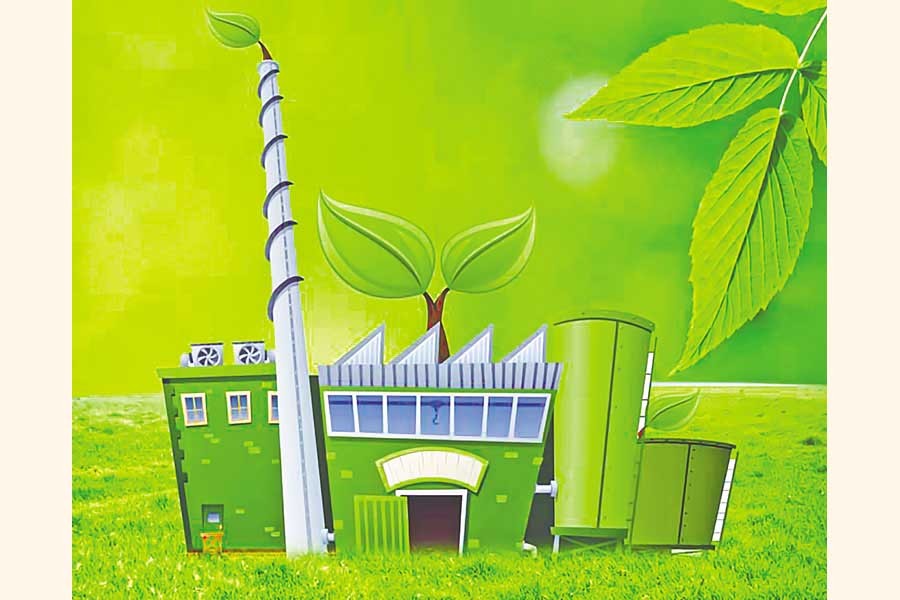
Published :
Updated :

Speakers at a recent event underscored the urgent need for green industrialisation in Bangladesh to achieve sustainable development and attract foreign direct investment. The event, titled "More and Better Jobs for a Prosperous Bangladesh: Opportunities through Green Growth," served as a timely reminder that green industrialisation is not just an environmental obligation but also a strategic economic imperative. While industrialisation remains the cornerstone of socio-economic progress, its haphazard expansion has caused severe environmental degradation. The wretched state of the country's rivers, choked with solid waste and effluent from factories, is a glaring example of industrial pollution. Beyond water bodies, air quality and soil fertility in major industrial hubs such as Gazipur and Narayanganj have also been critically compromised. The environmental toll is not limited to ecosystems - it extends to public health, with children being the most vulnerable to respiratory ailments. Biodiversity is also under threat, while many fishermen and farmers are also losing their livelihoods. In the face of multifaceted challenges from growing industrial pollution, the speakers' call for green industrialisation cannot be overlooked.
Moreover, in a global economy increasingly driven by environmental sustainability, green industries have become a crucial factor in attracting foreign direct investment (FDI). International buyers and investors are prioritising markets that embrace green practices. However, as speakers highlighted, Bangladesh faces significant policy and infrastructural gaps in advancing green growth. Dr. M. Masrur Reaz, chairman of Policy Exchange Bangladesh (PEB), emphasised green industrialisation's potential to generate employment and improve resource efficiency, but noted that achieving this vision requires overcoming systemic barriers such as inadequate access to advanced technologies and limited financing options. An additional secretary at the Ministry of Commerce, underscored the importance of aligning green growth initiatives with national development goals to ensure they complement broader socio-economic objectives.
The stakes, therefore, are high for Bangladesh. Bangladesh's manufacturing sector, important for its economy, risks losing its competitive edge if it fails to adapt to the demands of a green global marketplace. Transitioning to eco-friendly practices can open new markets, especially in Europe and North America, where consumer preferences are increasingly aligned with sustainability. To bridge the policy gaps, a cohesive strategy is essential. This strategy should include incentives for industries to adopt environmentally sustainable practices, such as tax benefits, green financing, and subsidies for technology upgrade. Additionally, public-private partnerships can play a pivotal role in fostering innovation and building the necessary infrastructure for green growth.
Bangladesh's ready-made garment (RMG) industry has demonstrated that change is possible with strong determination and sustained effort. Following the Rana Plaza tragedy, there were widespread calls for boycotting apparel products from Bangladesh. However, since then, the industry has undergone a seismic shift in safety standards and environmental sustainability. Bangladesh now boasts the highest number of green garment factories in the world, which has helped the country to regain the confidence of international buyers and solidify its position as the world's second-largest apparel exporter. At the same time, it has been evident how the failure to maintain environmental sustainability has held back the export potential of the country's leather industry. The tannery industry has been relocated from Hazaribagh to Savar. But the authorities could not install a central effluent treatment plant at the proposed site in Savar in over almost a decade. To effectively materialise the concept of green industrialisation across all sectors, urgent action, strong political will, and collaboration from all stakeholders are required.


 For all latest news, follow The Financial Express Google News channel.
For all latest news, follow The Financial Express Google News channel.